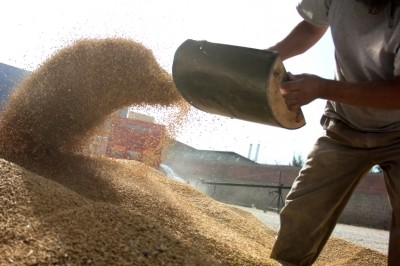Special Edition: Environmental friendly feed sector initiatives
UK feed mill revamp: ForFarmers banking on 20% energy savings

The feed manufacturer’s application was approved by Exeter City Council despite concerns raised by a nearby business that the height of the new build would block its telecommunications signals.
Nico de Vos, director of operations and supply chain at ForFarmers, told us the new Exeter facility has to go higher than the current plant to accommodate the planned “energy efficient” vertical conveyor transport system it is set to install.
“The existing plant has a horizontal mode of conveying. We estimate a vertical system will save us 20% on energy costs,” he said.
Put simply, the speedier transit ensures quicker runs and limits pellet damage. Consequently, said de Vos, ForFarmers would expect to see a knock on effect in terms of lower energy usage at the pellet processing stage due to this ring fencing of quality through vertical conveying.
New bin system
The new design, in addition, has to take account of the needs of a new system of copy bins that ForFarmers will deploy in order to have faster loading times, he said.
The height of the current Exeter plant is too low to install such bins, which are placed between the feed silo and the truck.
ForFarmers will also be using tipper trucks to supply compound feeds to farmers in the South West region, he said.
The company developed the transport in collaboration with Dutch logistics company, HW van der Peet & Sons, and AB Texel in Peterborough in the UK.
The trucks are said to be ultralight, maneuverable and multifunctional and can either deposit animal feeds loosely or blow them into a silo without the need for tipping. “This is very useful in the UK where there are exposed power lines near farms that make tipping a particular challenge,” said de Vos.
The Dutch feed group said as the lorries are two tons lighter than conventional tipper trucks, they can transport more finished product, allowing it to reduce the CO2 emissions per ton of transported feed by 8%.
The trailer’s multifunctional character means it is also easier to arrange a return load, resulting in a decrease in the number of empty miles the lorries travel, another of the firm’s sustainability policy goals.
Capacity expansion
The new mill, said de Vos, is scheduled to go on stream in summer 2017 and will serve the whole of the South West. It will have double the output capability of the existing facility — capacity will jump from 150,000 to 300,000 tons of mainly dairy feed per annum.
“We will also be accommodating the current Exeter blend plant within the new set up, so those products will form part of additional tonnage,” he said.
The operations expert said the investment is based on the rationale that demand for dairy feed in that market will lift despite the difficulties that UK livestock is currently facing.
Some 10% of the feeds from the new facility will target the pig and poultry sectors in that part of the UK, he added.










